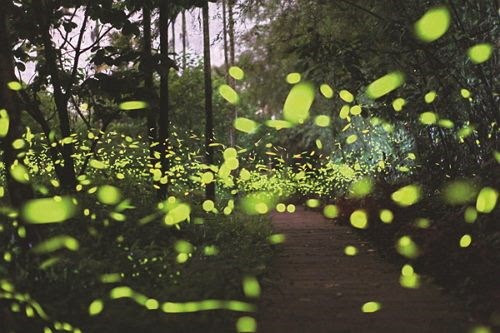|
Posted: 13 Apr 2020 02:33 PM PDT
Taipei Times
Date: Apr 14, 2020 By: Staff writer, with CNA The military is planning to spend millions of New Taiwan dollars to design and build its own military-use powered exoskeleton, which is expected to begin production in 2023, a Ministry of National Defense budget proposal for fiscal 2020 showed. The Armaments Bureau has allocated NT$250 million (US$8.3 million) to develop a powered exoskeleton, a wearable mechanized system that magnifies movements, allowing enhanced ability to perform physical tasks. The military plans to use the suits in wartime and in post-disaster rescue and relief missions, a military source said yesterday. The project expects to learn from the US military’s experience in developing its own powered exoskeleton that increases mobility and reduces fatigue for operators, which could prove helpful during combat or rescue missions, the source said. [FULL STORY] |
|
Posted: 13 Apr 2020 02:28 PM PDT
Radio Taiwan International
Date: 13 April, 2020 By: Leslie Liao 
A high speed rail station in Southern Taiwan needed a creative way to enforce social distancing
The Zuoying High Speed Rail (HSR) station in Southern Taiwan tried to play nice and remind people to maintain social distance. At first, they tried to mark seats with an “X” to remind people to give each other space. But stationmaster Liu Jun-zhe (劉俊哲) says that people didn’t abide by reminders or markers in the station. He said that any effort by staff to enforce social distancing risked turning into a conflict. So what happens when people don’t listen? Well, that’s when the power tools come out! When people refused to leave seats empty, the HSR went ahead and removed the middle seats. In their new configuration, the seats force people to comply with the 1.5 meter social distancing guidelines. [FULL STORY] |
|
Posted: 13 Apr 2020 02:24 PM PDT
With U.S.-China relations showing scant improvement, Taiwan may bolster its global standing.
Forreign Policy Date: Apri0l 13, 2020 By: Nicole Jao 
Chen Chin-fang, the plant manager of Taiwan’s Universal Incorporation, one of the country’s biggest mask-makers, inspects mask materials at a factory in Tainan on March 6. SAM YEH/AFP VIA GETTY IMAGES
The coronavirus pandemic, which has already infected more than 1.6 million people around the world, has transformed the value of basic medical supplies. In many countries, vital gear such as face masks, swabs, gloves, and gowns has dwindled to dangerous lows. Countries are imposing export bans on personal protective equipment (PPE) precisely as governments are scrambling to import record numbers of the same items. International supply chains for medical supplies have never been so dysfunctional—and the countries that produce them have never been so powerful. Taiwan—one of the world’s biggest suppliers of medical-grade masks and one of the few places to have successfully battled back COVID-19—is a case in point. It now has a rare opportunity to leverage this moment to make political gains against its long-running antagonist, China. Taipei will have to play its cards carefully, however—especially in Washington. Taiwan, with a population of just 23 million people, is now the second-largest global producer of face masks after China. It produces 15 million masks each day, according to Taiwan’s economic affairs minister, Shen Jong-chin. As more factories join forces to churn out medical-grade masks, the government expects to raise production to 17 million masks a day by the end of the month. In March, Taipei relaxed an export ban on masks imposed on Jan. 24. The United States, which now has the most coronavirus cases in the world, stands to benefit. Last month, Taiwanese Foreign Minister Joseph Wu pledged to donate 100,000 surgical face masks per week to the United States. The United States, in return, would agree to send 300,000 hazmat suits to Taiwan. [FULL STORY] |
|
Posted: 13 Apr 2020 02:18 PM PDT
The county's agricultural department said it’s sad to see fat Formosan macaques of sort in photo
Taiwan News Date: 2020/04/13 By: George Liao, Taiwan News, Staff Writer 
Formosan macaques at the Dengxian Bridge in Taitung County (蔡煥棟 photo) (CNA photo)
Facebook user Tsai Huan-dong (蔡煥棟) posted a photo of three Formosan macaques, with one being particularly fat, and captioned the photo “The fatty at Dengxian Bridge of the Donghe-Fuli Highway.” The post prompted comments from other users, including “Really too fat,” “So fat,” “Eat too well,” and “Sad to watch…don’t feed again,” CNA reported. The county’s agricultural department said that the county put in place regulations four years ago that stipulate fines of up to NT$10,000 (US$334) for those caught feeding wild monkeys. However, according to the department, no tickets have yet been issued, as it’s not easy to catch violators. [FULL STORY] |
|
Posted: 13 Apr 2020 02:14 PM PDT
Focus Taiiwan
Date: 04/13/2020 By: William Yen 
Fireflies in Taipei / Image courtesy of Taipei City government
This year's activities, which originally included firefly tour guides, concerts, and celebrations for Earth Day, held every April 22 to promote environmental protection, have all been canceled as part of social distancing measures, the PSLO said in a statement. The firefly season was originally slated to be held from April 13 to May 3 at various parks across the city, the PSLO said. Even though the event and its activities have been canceled, people can still visit Taipei's Daan Forest Park, Muzha Park, and Rongxing Park to see fireflies, PSLO Director Chen Jung-hsing (陳榮興) said. [FULL STORY] |
|
Posted: 13 Apr 2020 02:10 PM PDT
EASY CROP: A farmer said the plant, which looks similar to wheat, yields three harvests per year and despite its resilience, needs to be protected from birds and weeds
Taipei Times Date: Apr 14, 2020 By Chen Hsien-yi and Dennis Xie / Staff reporter, with staff writer 
Taiwanese oil millet basks in the sunligh in Taitung County yesterday.
Photo: Chen Hsien-yi, Taipei Times Eccoilopus formosanus is extremely resilient, able to survive droughts, colds and salinized soil, said Hsing, who is also a professor of agronomy at National Taiwan University. It is easier to grow than most major high-yield crops — such as rice, wheat, corn, cassava or sorghum — the production of which is reliant on heavy irrigation, herbicides and fertilization, but Taiwanese oil millet does not require that much effort, she said. Some bed-and-breakfast owners in Taitung participating in her research used the plant and yeast used by Aboriginal cultures to make bread and bagels, which were widely favored by guests, she said. [FULL STORY] |
|
Posted: 13 Apr 2020 02:05 PM PDT
Radio Taiwan International
Date: 13 April, 20208 By: Leslie Liao 
People visiting night markets must now wear face masks!
One of the many joys in Taiwan is strolling through a night market while snacking on your favorite foods. Now the government is putting a halt to this treasured activity, due to concerns about coronavirus. Last week, the Central Epidemic Command Center (CECC) told tourist hotspots to limit their capacity. Now, they are requiring face masks at all shopping districts, traditional markets, and night markets. CECC Deputy Commander Chen Tsung-yen says the new policy forbids people from eating as they walk through night markets. That’s because it could spread the virus. |
|
Posted: 13 Apr 2020 02:02 PM PDT
Epoch Times
Date: April 13, 2020 
J15 fighter jets on China’s sole operational aircraft carrier, the Liaoning, during a drill at sea in April 2018. (AFP/Getty Images)
The recent violations of Taiwan’s airspace by Chinese fighters, bombers and reconnaissance aircraft is testing the U.S. capability to respond with resources strained by the CCP virus pandemic. Taiwan Ministry of National Defense (MND) reported on April 10 that “several” Chinese J-11 jet fighters, H-6 bombers, KJ-500 command and early warning aircraft violated Taiwan’s western airspace in the South China Sea, before turning south to violate the Philippines and Taiwan airspace over the Bashi Channel. The integrated air squadron violation follows another provocation that began at 11 a.m. on March 31 when two J-11 jet fighters from China’s People’s Liberation Army Air Force (PLAAF) crossed the so-called median line of the 110-mile Taiwan Strait. Such provocations by both nations were common in the 1990s before a tacit agreement was put into place to reduce tensions by keeping their vessels from crossing it. But the ten-minute standoff with Taiwanese F-16 fighters was the first median-line breach in over a decade, according to Bonnie Glaser, director of the China Power Project at the Center for Strategic and International Studies think tank in Washington. [FULL STORY] |
|
Posted: 13 Apr 2020 01:57 PM PDT
Former US ambassador to UN also warns of China’s growing influence on multilateral organizations
Taiwan News Date: 2020/04/137 By: George Liao, Taiwan News, Staff Writer TAIPEI (Taiwan News) — Former U.S. ambassador to the United Nations Nikki Haley called for an 
Nikki Haley (Wikimedia Commons photo)
“They need to be investigated. Why was it when the Taiwanese told the World Health Organization on December 31 that they had evidence that this was human to human transmission…Why does it take a whole month for the world health organization to respond?” Haley said. “You want to know why that is? Because China has kept Taiwan from being a member of the world health organization.” The former diplomat told Hannity that the U.S. deserved to hold the WHO accountable and deserved answers. When asked why the U.S kept putting big money into the WHO and getting nothing in return, Haley said, “The president is right to say 'I am going to withhold money until I am getting answers.' They owe us those answers. They can foul mouth and they can talk about victimization. What about the victimization of Americans who have to deal with this crisis? What about the victimization of so many other people in other countries in the world. We are not the only country that is upset about this, Sean. Ask all of them.” [FULL STORY] |
|
Posted: 13 Apr 2020 01:51 PM PDT
Focus Taiwan
Date: 04/13/2020 By: Yeh Su-ping, Ku Chuan and Chiang Yi-ching Taipei, April 13 (CNA) A rapid diagnostic test for COVID-19 developed by Taiwan's Industrial Technology 
Vice Minister of Economic Affairs Lin Chuan-neng displays a prototype of the rapid diagnostic test at a press conference on Monday.
The ITRI has developed a prototype for the testing device, which can produce results in under an hour at a 90-percent accuracy rate, Vice Minister of Economic Affairs Lin Chuan-neng (林全能) said at a press conference. The nucleic acid test is designed to screen patients who are in the incubation period, meaning those who have contracted the disease but have not yet displayed symptoms, Lin said. Weighing about 600 grams, the device is likely the smallest rapid diagnostic test for COVID-19 that is under development, according to the official. [FULL STORY] |
FOR THE FRIENDSHIP OF BRAZIL AND SPANIC AMERICA WITH CHINA, TAIWAN, JAPAN, KOREA, INDOCHINA, MALASIA, INDONESIA, PHILIPPINES, MONGOLIA PELA AMIZADE DO BRASIL E HISPANO AMERICA COM CHINA,TAIWAN,JAPÃO,COREIA,INDOCHINA,MALASIA,INDONÊSIA,FILIPINAS,MONGOLIA
Search This Blog
Tuesday, April 14, 2020
Eye On Taiwan
Subscribe to:
Post Comments (Atom)
No comments:
Post a Comment